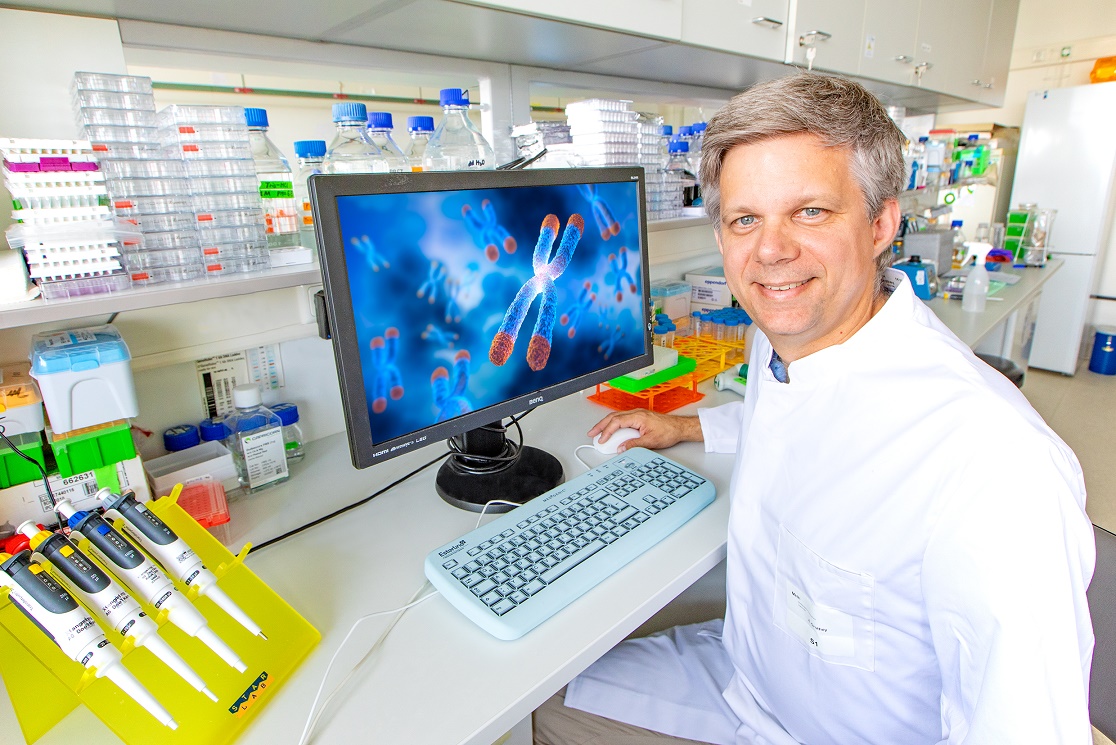On the path to better therapies: Researchers have established a direct link between centromeres and immunity for the first time.

Professor Dölken at the Institute of Virology at Hannover Medical School (MHH). The screen shows an image of a chromosome with the centromere in the middle. Copyright for the photo: Karin Kaiser/MHH Copyright for the image on the screen: iStock/peterschreiber.media
Some cancers and chronic inflammatory diseases are treated with immunotherapies. These stimulate the patient's immune system to recognize and destroy tumor cells. To improve such therapies, researchers are looking for mechanisms involved in triggering an immune response. Based on this, further helpful molecules can be developed. Now, researchers have discovered such a mechanism in an unexpected place: they have found that the so-called centromeres – the areas of chromosomes that are particularly important for cell division – are directly linked to the immune system. The research results were published in the renowned journal Cell.
The work was made possible by the use of virus mutants produced by the team led by Prof. Dr. Lars Dölken, Director of the Institute of Virology at Hannover Medical School (MHH), for use in research. The viruses are herpes simplex viruses type 1 (HSV-1), which cause cold sores. The study was conducted at the Institut Curie in Paris, France, by Professor Nicolas Manel (INSERM) and Dr. Xavier Lahaye (CNRS) in collaboration with the team of Professor Daniele Fachinetti (CNRS). Viruses are valuable tools for research. They can infect cells, hijack their functions, and trigger strong immune responses.
Herpes viruses are particularly interesting because they can even penetrate the cell nucleus. "The research team led by Professor Manel has discovered that viruses that have penetrated the cell nucleus disrupt the stability of the centromeres, leading to selective DNA replication of these chromosome regions. This unusual DNA replication is recognized by the cell and triggers activation of the cell's own immune system and thus a systemic antiviral response“, explains Professor Dölken, who is also a researcher in the RESIST Cluster of Excellence. ”The hope now is that identifying and deciphering the underlying mechanisms will lead to the development of new immunotherapies against viruses or cancer."
Text: Bettina Bandel